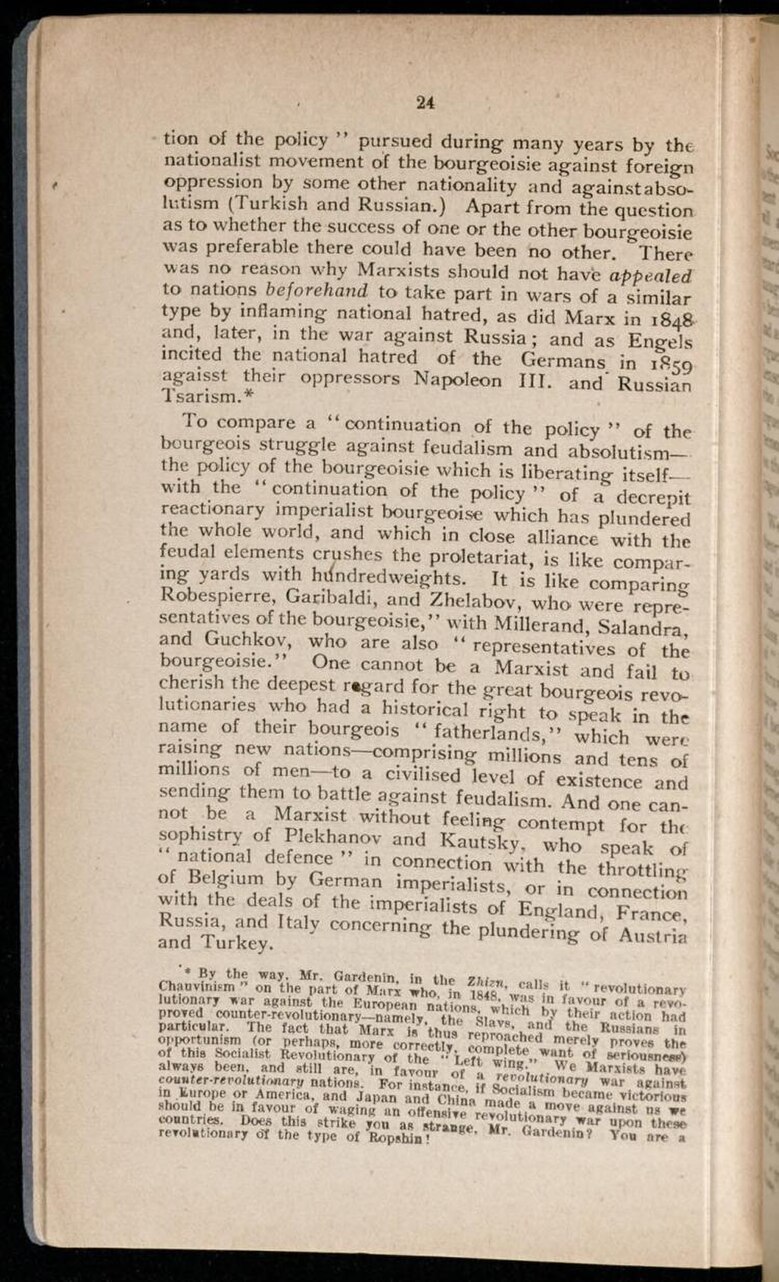24
tion of the policy" pursued during many years by the nationalist movement of the bourgeoisie against foreign oppression by some other nationality and against absolutism (Turkish and Russian.) Apart from the question as to whether the success of one or the other bourgeoisie was preferable there could have been no other. There was no reason why Marxists should not have appealed to nations beforehand to take part in wars of a similar type by inflaming national hatred, as did Marx in 1848 and, later, in the war against Russia; and as Engels incited the national hatred of the Germans in 1859 against their oppressors Napoleon III. and Russian Tsarism.[1]
To compare a "continuation of the policy" of the bourgeois struggle against feudalism and absolutism― the policy of the bourgeoisie which is liberating itself― with the "continuation of the policy" of a decrepit reactionary imperialist bourgeoise which has plundered the whole world, and which in close alliance with the feudal elements crushes the proletariat, is like comparing yards with hundredweights. It is like comparing Robespierre, Garibaldi, and Zhelabov, who were representatives of the bourgeoisie," with Millerand, Salandra, and Guchkov, who are also "representatives of the bourgeoisie." One cannot be a Marxist and fail to cherish the deepest regard for the great bourgeois revolutionaries who had a historical right to speak in the name of their bourgeois "fatherlands," which were raising new nations―comprising millions and tens of millions of men―to a civilised level of existence and sending them to battle against feudalism. And one cannot be a Marxist without feeling contempt for the sophistry of Plekhanov and Kautsky, who speak of "national defence" in connection with the throttling of Belgium by German imperialists, or in connection with the deals of the imperialists of England, France, Russia, and Italy concerning the plundering of Austria and Turkey.
- ↑ By the way. Mr. Gardenin, in the Zhizn, calls it "revolutionary Chauvinism" on the part of Marx who, in 1848, was in favour of a revolutionary war against the European nations, which by their action had proved counter-revolutionary―namely, the Slavs, and the Russians in particular. The fact that Marx is thus reproached merely proves the opportunism (or perhaps, more correctly, complete want of seriousness) of this Socialist Revolutionary of the "Left wing." We Marxists have always been, and still are, in favour of a revolutionary war against counter-revolutionary nations. For instance, if Socialism became victorious in Europe or America, and Japan and China made a move against us we should be in favour of waging an offensive revolutionary war upon these countries. Does this strike you as strange, Mr. Gardenin? You are a revolutionary of the type of Ropshin!
